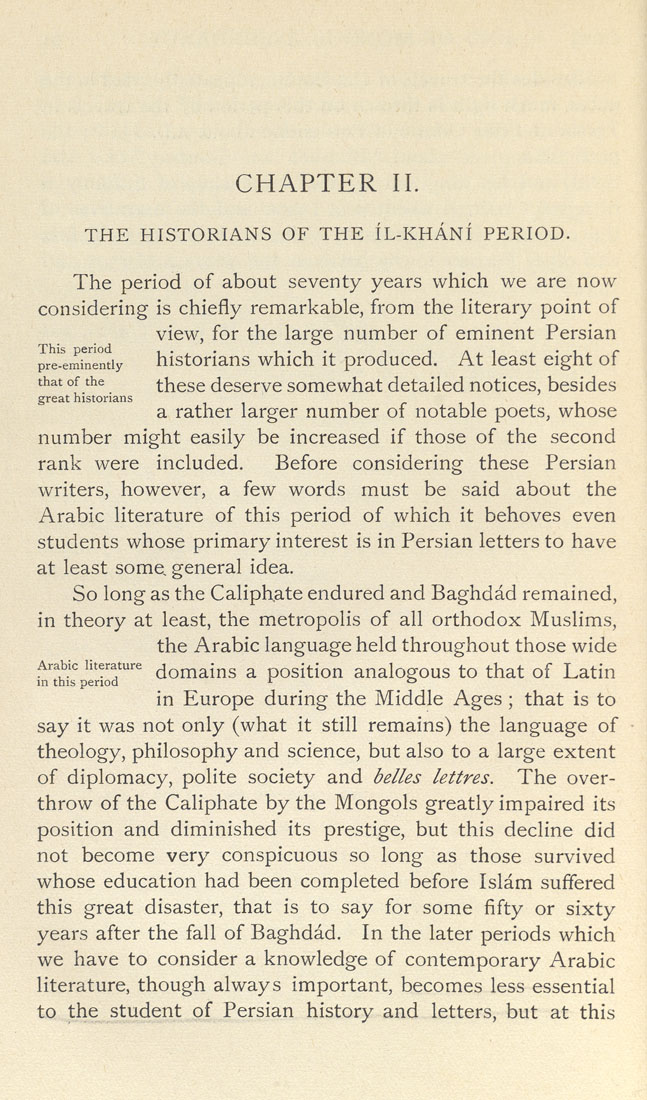CHAPTER IL
THE HISTORIANS OF THE IL-KHANI PERIOD.
The period of about seventy years which we are now
considering is chiefly remarkable, from the literary point of
view, for the large number of eminent Persian
pre-emfnlntiy hlstorlans which it produced. At least eight of
that of the these deserve somewhat detailed notices, besides
great historians
a rather larger number of notable poets, whose
number might easily be increased if those of the second
rank were included. Before considering these Persian
writers, however, a few words must be said about the
Arabic literature of this period of which it behoves even
students whose primary interest is in Persian letters to have
at least some, general idea.
So long as the Caliphate endured and Baghdad remained,
in theory at least, the metropolis of all orthodox Muslims,
the Arabic language held throughout those wide
Arabic literature (^Qj^jaj^s SL oositiou aualogous to that of Latin
in this period ^ *-•
in Europe during the Middle Ages ; that is to
say it was not only (what it still remains) the language of
theology, philosophy and science, but also to a large extent
of diplomacy, polite society and belles lettres. The over¬
throw of the Caliphate by the Mongols greatly impaired its
position and diminished its prestige, but this decline did
not become very conspicuous so long as those survived
whose education had been completed before Islam suffered
this great disaster, that is to say for some fifty or sixty
years after the fall of Baghdad. In the later periods which
we have to consider a knowledge of contemporary Arabic
literature, though always important, becomes less essential
to the student of Persian history and letters, but at this
|








